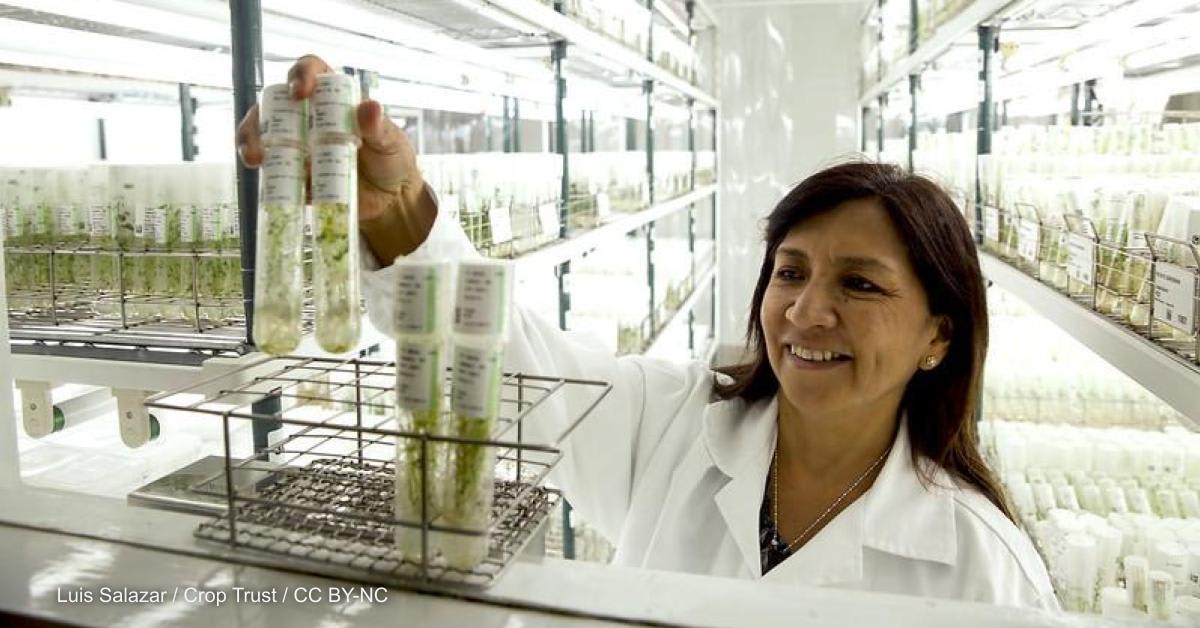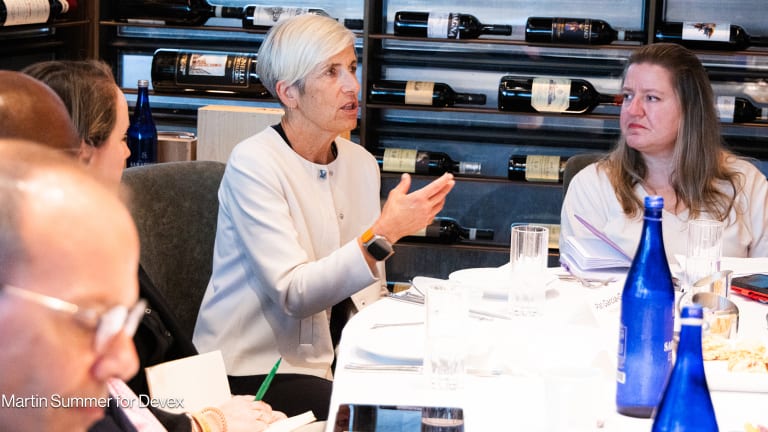
The World Health Organization has said the problem of antimicrobial resistance, or AMR, is so serious that it threatens the achievements of modern medicine. AMR occurs when bacteria, viruses, fungi, and parasites change over time and no longer respond to medicines, making infections harder to treat. The result is an increased risk of disease spread, severe illness, and even death for both animals and humans.
For World Antimicrobial Awareness Week, acknowledged Nov. 18-24 each year, let’s explore how one U. S. Agency for International Development-funded project is leveraging private sector expertise to increase global health security and increase access to safe, affordable animal-sourced nutrition in Kenya, India, Indonesia, and Vietnam.
The threat
Antimicrobial-resistant organisms can be found virtually everywhere — in humans, animals, plants, and the environment — in part, as antimicrobial resistance development is a natural biological process of bacterial survival. There are many drivers of AMR, including the misuse of antimicrobials; lack of access to clean water, sanitation, and hygiene for humans and animals; poor infection and disease prevention and control in health care facilities and farms; poor access to quality, affordable medicines, vaccines, and diagnostics; lack of awareness and knowledge; and lack of laws and regulations with relevant implementation and enforcement.
AMR and zoonoses — diseases that transfer from animals to humans — do not just threaten human health, but farmer livelihoods as well. Integrated large- and medium-sized commercial farmers with low or medium biosecurity practices are at risk of disease outbreaks that can decimate their flocks or herds. Small backyard farmers with low biosecurity practices may be challenged to provide for their families and communities due to animal mortality. Smallholder farms often operate without savings, insurance, or other formal safety nets, thus the loss of animals — or a reduction in their productivity — can be catastrophic.
A coordinated effort
Critical global problems such as AMR can only be properly addressed through coordinated partnerships between the public and private sectors across different value chains. One cross-sector partnership is Transformational Strategies for Farm Output Risk Mitigation, or TRANSFORM, which is funded by USAID as part of the Global Health Security Program and implemented by Cargill, Inc., in partnership with Ausvet, Heifer International, and the International Poultry Council. The goal of TRANSFORM is to sustainably strengthen animal-sourced food systems to prevent or minimize AMR, zoonoses, and transboundary animal diseases, or TADs.
While AMR is a complex, global issue with many potential solutions, TRANSFORM aims to study the following theory of change by developing:
• User-centered, improved data collection, analysis and application for animal health surveillance.
• Increased poultry industry awareness of and commitment to antimicrobial use stewardship.
• Training to introduce locally relevant, innovative, and sustainable solutions for farmers in bio-security, farm management, and animal nutrition practices.
If successful, we anticipate more bio-secured farms, improved animal health, reduced disease threats to animal and human health, improved on-farm practices that reduce antimicrobial use and reduced risk of outbreaks of zoonoses and TADs. Ultimately, the goal of TRANSFORM is to contribute to improved global health security through better human nutrition and reduced disease risks.
Benefits of cross-sector partnerships
While mitigation of risks to human health is the priority for TRANSFORM, the consortium also seeks to understand the benefit of cross-sector partnerships in achieving improved global health security.
Building on the strengths of public and private partners, we anticipate this unique collaboration will bring greater scale, resources, efficiency, and shared value throughout the market system, ultimately driving lasting transformational change.
After completing just one year of the five-year project, we see a few areas of impact that can provide learnings for others embarking on a cross-sector partnership.
First, market sustainability can be better attained when the private sector is fully engaged early in solving a problem as they make critical farm management decisions daily. Governments can help with appropriate science-based laws and regulations to guide policy. Pairing the proper policy with on-farm implementation, and thus action, is a win for both consumers and businesses in a market-oriented system.
While many development programs are focused on building the capacity of farmers by training them on new techniques that improve knowledge and changing behaviors, they don’t always involve key market influencers and players. The result is work that stops when the program stops. Focusing on integrated private sector solutions that farmers can experience the economic benefits of — and fully implement — is a much more sustainable approach. In TRANSFORM, each component is designed for eventual market uptake; hence the private sector's philosophy, perspective, insights, and marketplace knowledge are recognized as crucial for success and incorporated from the start. This strategy is market-based, then built to leverage market forces to sustain project impact after the implementation period.
Second, the diversity of thought that is brought together when public and private entities collaborate will develop better solutions. This includes the supply chains that are in a market, including the public sector that is making policy decisions and providing much-needed extension services, especially for small- to medium-sized farmers. Realistic policies that can be implemented and followed are important — but as important is the market pull that the private sector can bring.
Notably, AMR is a complex problem that involves many different sectors. In TRANSFORM, USAID has led the creation of a team consisting of two private sector companies, one NGO, and one international association. Each group thinks differently about how to solve problems and can challenge each other aiming for the best solution. The group’s research experiences, data capabilities, training capacities, and member outreach, collectively provide for a marketplace mindset and long-term solution.
Importantly, more projects that involve true public and private sector collaboration will increase trust and industry sharing of best practices, ultimately positively impacting market players and the countries they operate in. This will be seen through policies and regulations that are achievable and enforceable leading to more transparent supply chains.
This work will also lead to more open discussions when problems occur so that timely solutions can be developed and implemented, reducing the risks to animal and human health.
Creating sustainable impact
For successful programs that can positively impact communities, partnerships between the public and private sectors are crucial. Complex problems require a long-term, multi-stakeholder, market-based, sustainable mindset, as well as diversity of thought and trust. So, during World Antimicrobial Awareness Week, let us all look to bring the outside into our work to ensure that holistic and realistic solutions can be developed to increase global health security for all of us.
To learn more about TRANSFORM, read the latest articles on Agrilinks or visit www.cargill.com/sustainability/transform.









